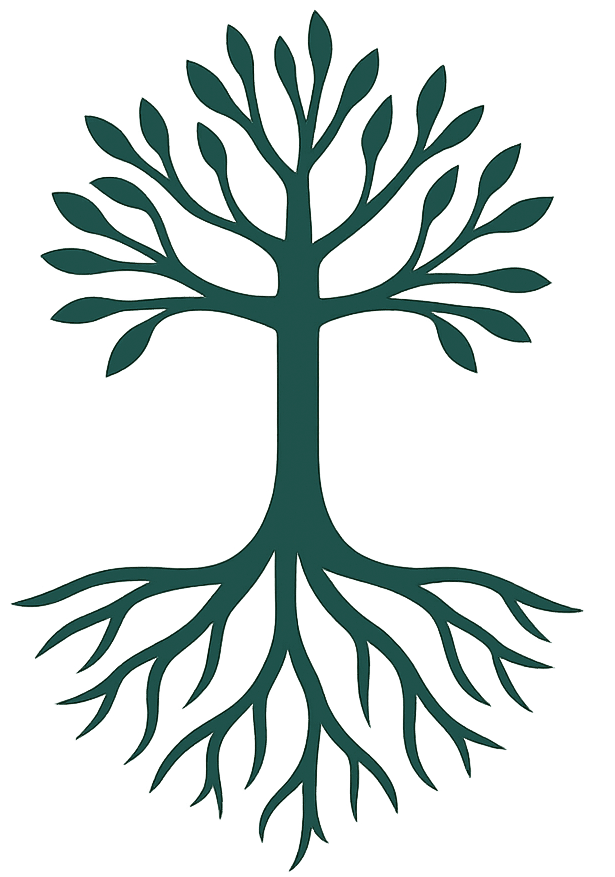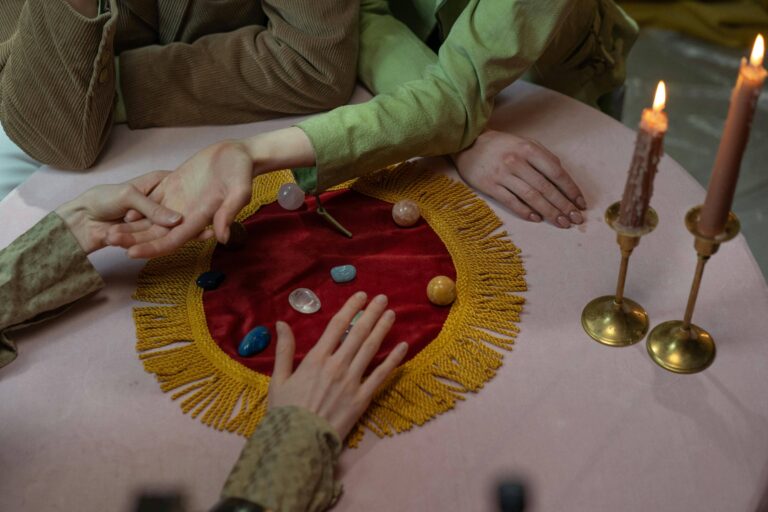Distinctive Doctrines
The doctrines of Wicca are akin to an all-you-can-eat buffet; there are many to choose from, and one can take as many or as few as they wish. This article will cover some of the key doctrines, including the concept of a higher power and its implications, the Wiccan perspective on reincarnation, Wiccan festivals, and notable differences from the Biblical perspective.
The Doctrine of a Higher Power
It is difficult to fully explain the Wiccan idea of a higher power, as within the Wiccan practice, there are many differing interpretations. Wiccan practitioner, Sable Aradia, observes that, “It is perfectly valid to interpret Wicca as duotheism, deism, polytheism, animism, shamanism, pantheism, panentheism, monotheism, agnosticism or atheism; and I know Wiccans who hold all of these views, often at the same time.”1 As such, a few of the most prominent viewpoints will be discussed below, while keeping in mind that a Wiccan follower could believe in all or none of these doctrines.
The influential Wiccan author, Raymond Buckland, defined a higher power as the “Ultimate Deity… some genderless force which is so far beyond our comprehension.”2 Meanwhile, 21st-century practitioner Silver RavenWolf likened it to the Force from Star Wars, a neutral power that is in all people and nature.3 However, one of the most popular Wiccan understandings of a higher power is the God and Goddess, that is, the masculine and feminine aspects of the Divine who manifest as a god and a goddess.4 The Council of American Witches’ 13 Principles of Belief describe the God and Goddess as such: “We conceive of the Creative Power in the Universe as manifesting through polarity- as masculine and feminine- and that this same creative Power lives in all people.”5
In addition to the Wiccan belief in an ultimate higher power, there are also individual gods and goddesses a follower will “work with,”6 generally stemming from the Roman, Greek, Egyptian, Nordic, Native American, Mayan, African pantheons, or Faery Tradition.7 The interpretation of these individual gods regarding the God and Goddess varies, with some practitioners viewing other gods as “lesser aspects” of the God and Goddess who act as the world’s supreme deities, while others take a polytheistic approach with individual gods existing on their own in addition to the God and Goddess.8 Practitioner, Silver RavenWolf, is adamant that one does not grovel before these deities;9 rather, one honors and calls upon these deities when needing assistance.10 In Wicca, it is believed that everyone possesses the ability to perform magic as long as they meld their “mind with the power of the Universe… [and] channel [their] energy with a god/goddess in a specific direction for a specific purpose.”11 After this, one can recite a spell written ahead of time, asking for the “essence” of what they wish to accomplish.12
The Doctrine of Reincarnation
The doctrine of reincarnation is not unique to Wicca, but is found in other major religions as well, such as Hinduism and Buddhism. Generally, a Wiccan believes that a person will die and be born into a new body where they learn unique lessons until they “graduate” to a higher level, doing this until they “return to [their] divine source.”13 There is a place spirits go in between death and rebirth called the “Summerland.”14 Here, they can process what they learned in their previous lives,15 or watch over other spirits on earth as “Spirit Guides.”16
Along with reincarnation is the “Rule of Three” that most Wiccans ascribe to. This is similar to karma in that when one does good, good is done to them threefold, and the same applies to when one does evil.17 Buckland explains, “your job is to progress; to strive your hardest towards perfection. You create your own reality.”18 Yet Wolf states, “not every difficulty you are involved in is a result of Karmic backlash.”19
Wiccan Festivals
Most Wiccans celebrate festivals they call “Sabbats.” Principle Belief 1 from the American Council of Witches states that “we practice rites to attune ourselves with the natural rhythm of life forces marked by the phases of the Moon and the seasonal quarters.”20 There are eight Sabbats that represent seasonal birth, death, and rebirth,21 divided into the ‘Lesser Sabbats’ that occur at the Summer/Winter Solstice and the Spring/Autumn Equinox. The four ‘Greater Sabbats’ are more in the nature of seasonal.”22 The dark half of the year represents the God and the light half represents the Goddess.23 Outside of these festivals, Wiccans can practice Esbats, which are “days…set aside to do magickal work for a friend in need, [or] to set the stage for a new endeavor.”24 It is seen as a time to recharge, strengthen, and give honor to the Goddess.25
Differences Between Wiccan and Christian Doctrine
The most notable differences between Wiccan and Christian doctrine stem from their understandings of religious exclusivity and sin. While Christians believe in the exclusivist claims of Jesus, such as his statement in John 14:6 (NIV), Wiccan followers do not believe that an ultimate authority, such as the God and Goddess, demands exclusivity. Rather, within Wicca, there is a general belief that Jesus was a great sage and pointed the way to the Divine,26 but there is a notable disdain specifically towards the Christian faith, seen in Principle Belief 10, which states: “Our only animosity toward Christianity, or toward any other religion or philosophy-of-life, is…its institutions have claimed to be ‘the one true right and only way’ and have sought to deny freedom to others and to suppress other ways of religious practices and belief.”27
In addition, the average Wiccan does not believe in the idea of sin, original sin,28 or absolute evil.29 Rather, Christian-leaning Wiccan explanations of sin30 differ strongly from an orthodox Christian perspective, such as with Wiccan practitioner, Erin Dragonsong, who states that “hamartia… means missing the target… and the target you’re missing is the Divine.”31
Conclusion
The Wiccan faith and belief system is characterized primarily by the freedom of choice. Each practitioner has their own understanding of the divine, and one perspective is not more correct than another.32 This is what makes Wiccan doctrines truly distinct: their fluidity in interpretation from practitioner to practitioner, and emphasis on freedom on one’s own spiritual journey.33
- Sable Aradia, “The Many Faces of Wiccan Divinity,” Between the Shadows, July 2, 2015, https://www.patheos.com/blogs/betweentheshadows/2015/07/the-many-faces-of-wiccan-divinity/. ↩︎
- Raymond Buckland, Buckland’s Complete Book of Witchcraft (St. Paul, MN: Llewellyn Publications, 1986), 13. ↩︎
- Silver RavenWolf, To Ride a Silver Broomstick: New Generation Witchcraft (St. Paul, MN: Llewellyn Publications, 2001), 44. ↩︎
- Shawn Custer, “Wiccan Religion Gods & Goddesses,” Study.com, 2023, https://study.com/academy/lesson/wiccan-religion-gods-goddesses.html. ↩︎
- Ibid, 6. ↩︎
- Ibid, 43. ↩︎
- Ibid, 46. ↩︎
- Lisa Chamberlain, “The Wiccan Goddess and God,” Wicca Living, 2019, https://wiccaliving.com/wiccan-goddess-god/. ↩︎
- Ibid, 43. ↩︎
- Patti Wigington, “Basic Concepts of Wicca,” Learn Religions, April 4, 2019, accessed April 2, 2025, https://www.learnreligions.com/basic-principles-of-wicca-2562829 ↩︎
- Silver RavenWolf, To Ride a Silver Broomstick: New Generation Witchcraft, 45. ↩︎
- Ibid, 176. ↩︎
- Raymond Buckland, Buckland’s Complete Book of Witchcraft, 17. ↩︎
- Silver RavenWolf, To Ride a Silver Broomstick: New Generation Witchcraft, 259. ↩︎
- Gerald B. Gardner, Witchcraft Today (London: Rider and Company, 1954), 90. ↩︎
- Raymond Buckland, Buckland’s Complete Book of Witchcraft, 19. ↩︎
- Patti Wigington, “Basic Concepts of Wicca,” Learn Religions. ↩︎
- Raymond Buckland, Buckland’s Complete Book of Witchcraft, 18. ↩︎
- Silver RavenWolf, To Ride a Silver Broomstick: New Generation Witchcraft, 271. ↩︎
- Ibid, 6. ↩︎
- Ibid, 33. ↩︎
- Raymond Buckland, Buckland’s Complete Book of Witchcraft, 67. ↩︎
- Ibid, 15. ↩︎
- Silver RavenWolf, To Ride a Silver Broomstick: New Generation Witchcraft, 39. ↩︎
- Ibid, 40. ↩︎
- Erin Dragonsong, “What Are Wicca Beliefs About Jesus and Other Christian Stuff?” Wicca Spirituality, 2025, accessed April 2, 2025, https://www.wicca-spirituality.com/wicca-beliefs-jesus.html ↩︎
- Silver RavenWolf, To Ride a Silver Broomstick: New Generation Witchcraft, 7. ↩︎
- Erin Dragonsong, “What Are Wicca Beliefs About Jesus and Other Christian Stuff?” Wicca Spirituality. ↩︎
- Brian Bill, “What Jesus Would Say to a Wiccan,” Keep Believing Ministries. ↩︎
- For Wiccan practitioners who choose to take some of the teachings of Christianity into account in their personal practice and belief. ↩︎
- Erin Dragonsong, “What Are Wicca Beliefs About Jesus and Other Christian Stuff?” Wicca Spirituality. ↩︎
- Lisa Chamberlain, “What Is Wicca? A Beginner’s Guide to the Wiccan Religion,” Wicca Living, 2019, https://wiccaliving.com/what-is-wicca/. ↩︎
- Ibid. ↩︎
Works Cited
Aradia, Sable. “The Many Faces of Wiccan Divinity.” Between the Shadows, July 2, 2015. https://www.patheos.com/blogs/betweentheshadows/2015/07/the-many-faces-of-wiccan-divinity/.
Bill, Brian. “What Jesus Would Say to a Wiccan.” Keep Believing Ministries. October 31, 2010.
Accessed April 2, 2025. https://www.keepbelieving.com/sermon/what-jesus-would-say-to-a-wiccan/
Buckland, Raymond. Buckland’s Complete Book of Witchcraft. St. Paul, MN: Llewellyn
Publications, 1986.
Chamberlain, Lisa. “The Wiccan Goddess and God.” Wicca Living, 2019. https://wiccaliving.com/wiccan-goddess-god/.
———. “What Is Wicca? A Beginner’s Guide to the Wiccan Religion.” Wicca Living, 2019. https://wiccaliving.com/what-is-wicca/.
Custer, Shawn. “Wiccan Religion Gods & Goddesses.” Study.com, 2023. https://study.com/academy/lesson/wiccan-religion-gods-goddesses.html.
Dragonsong, Erin. “What Are Wicca Beliefs About Jesus and Other Christian Stuff?” Wicca
Spirituality. 2025. Accessed April 2, 2025. https://www.wicca-spirituality.com/wicca-beliefs-jesus.html
Gardner, Gerald B. Witchcraft Today. London: Rider and Company, 1954.
RavenWolf, Silver. To Ride a Silver Broomstick: New Generation Witchcraft. St. Paul, MN:
Llewellyn Publications, 2001.
Wigington, Patti. “Basic Concepts of Wicca.” Learn Religions. April 4, 2019. Accessed April 2, 2025. https://www.learnreligions.com/basic-principles-of-wicca-2562829
Featured photo courtesy of Mikhail Nilov via Pexels. Used for educational purposes under fair use.






